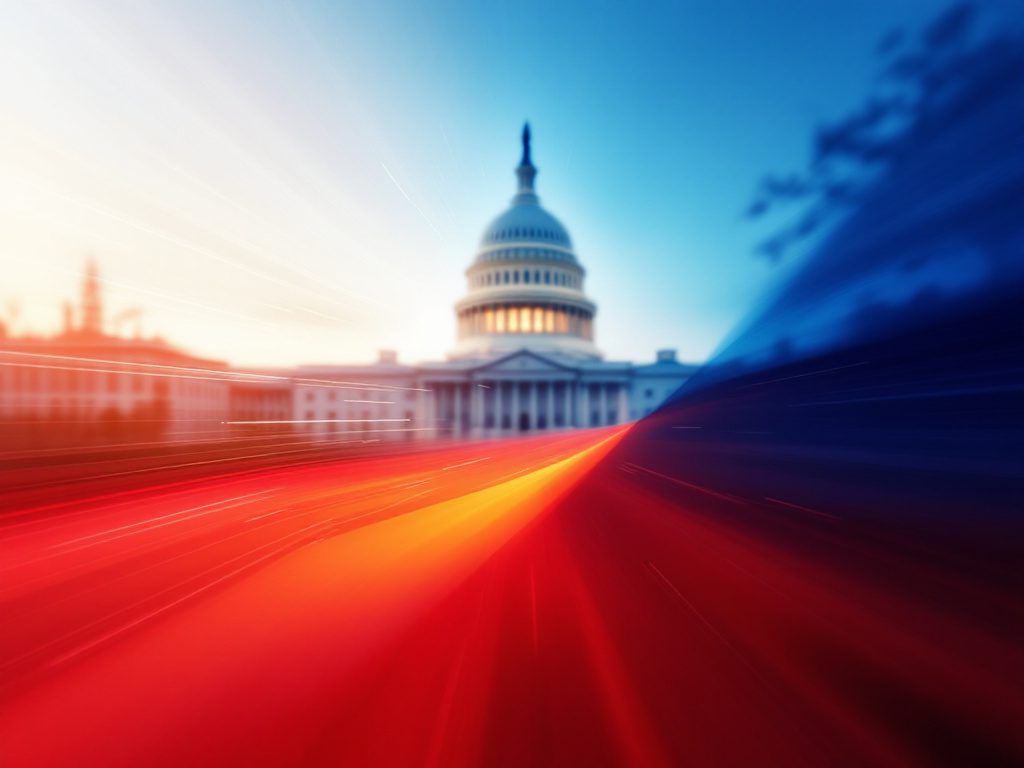The Unpredictable Rise of Tulsi Gabbard
Political careers rarely follow a predictable path. Tulsi Gabbard, once a rising star of the Democratic Party, has found herself in ever-shifting territory, refusing to rule out a 2028 run for the nation’s highest office. Her latest comments—delivered during a high-profile interview with Megyn Kelly, in the strikingly symbolic setting of the Liberty Crossing Intelligence Campus in McLean, Virginia—reveal much about not just Gabbard’s ambitions, but the murky realignments coursing through American politics today.
Recall Gabbard’s unprecedented journey: the first female combat veteran ever to run for president, a one-time congresswoman from Hawaii, and now, improbably, the Director of National Intelligence in a Republican administration helmed by Donald Trump. Her switch from Democrat to Republican appointee isn’t just a personal pivot; it’s a signpost for deeper shifts that have left many Americans questioning just what the two party labels even mean. She told Kelly, “I will never rule out any opportunity to serve my country,” a statement that fires up both her critics and her admirers.
Inside the lobby of that intelligence campus, Kelly pressed Gabbard: Could she become the first woman president? Gabbard, composed and unruffled, sidestepped with the ease of a seasoned politician: she’d continue to seek opportunities to serve, wherever they led.
Bipartisanship or Political Opportunism?
What does Tulsi Gabbard stand for? That question baffles many. Her journey from endorsing Joe Biden in 2020—after dropping out of the Democratic race—to publicly supporting Donald Trump in the current cycle illustrates a rare, if perplexing, breadth of political alliances. This isn’t the familiar centrism of decades past; it suggests something deeper, perhaps unsettling, in the American psyche—a hunger for disruption over orthodoxy.
Democratic senators unanimously opposed her confirmation as Director of National Intelligence. Their distrust reflects her sharp criticism of the party, particularly its embrace of what she dubbed “extreme wokeness.” Historian Julian Zelizer notes, “Gabbard’s criticism of her own party’s left flank echoes the intra-party fights that splintered Democrats in the late 1960s and 70s. Her candidacy tests whether American voters want a culture warrior, a bipartisan dealmaker, or something altogether new.”
“The lines blurring between party identities may be unsettling, yet they invite us to ask: What do Americans truly want in a leader—steadfast ideology, or a willingness to challenge every status quo?”
Beyond that, Gabbard’s attempt to straddle both sides comes at a turbulent moment. Her touting of cost-cutting moves—such as removing diversity, equity, and inclusion initiatives that purportedly saved her department $20 million—directly appeals to conservative talking points but dismisses the broader value of inclusion policies. Harvard political scientist Theda Skocpol points out that “DEI programs aren’t a luxury—they’re essential for ensuring fair representation and innovation in our national institutions.” Gabbard’s posture underscores a broader Republican trend: rolling back years of hard-fought progress, all under the guise of fiscal responsibility.
Speculation, Ambition, and Constitutional Ethics
The swirl of 2028 speculation doesn’t exist in a vacuum. Republican strategists and right-wing media have floated scenarios as outlandish as Trump maneuvering to run for a third term by legal sleight-of-hand—perhaps as vice president under JD Vance, only to ascend. While constitutional scholars quickly point out the 22nd Amendment’s clear intent, the very conversation points to how fragile many now see American democratic norms.
The deepening intrigue isn’t just about Trump or Gabbard’s ambitions—it’s about the system’s resilience under pressure from political actors unafraid to test its limits. New York University law professor Melissa Murray warns: “When politicians openly entertain workarounds to constitutional rules, it’s a red flag. It says something distressing about the normalization of anti-democratic instincts.”
Does the mere presence of such speculation erode faith in the peaceful transfer of power? Polls conducted by Pew Research over the past two years reveal a worrying trend: trust in U.S. institutions, including elections, has dropped precipitously across the political spectrum, with only about 20% of Americans expressing strong faith in the country’s democratic system as of 2023. Gabbard’s refusal to close the door on her own presidential ambitions, even as she serves atop the intelligence bureaucracy, will strike many as pragmatic—others will see it as opportunistic, perhaps even dangerous for constitutional norms.
What Could Gabbard’s 2028 Revolution Mean?
Consider what a Gabbard campaign in 2028 might look like. Her multifaceted resume—veteran, survivor of party infighting, internationalist with isolationist impulses—positions her as both insider and outsider, a rare combination in modern politics. But can someone who has burned so many bridges still build a coalition that reflects the country’s diversity, hopes, and challenges?
Expert analysis cautions against underestimating Gabbard’s public appeal. Unlike many of her contemporaries, she’s walked away from rigid party dogma. But history is replete with mavericks who captured headlines, only to falter when compromise became necessary. Former Senator and Secretary of State Hillary Clinton, in her 2016 run, found that breaking ‘first woman’ barriers was no bulwark against relentless attacks. Gabbard would likely face renewed scrutiny over her shifting allegiances, her critique of progressive causes, and her willingness to embrace elements of both left and right populism.
So what does this mean for you—the voter, the concerned American, or simply the political observer? Rooting for resilience and pragmatism in an era of division is appealing, but beware of candidates who wear every label interchangeably. Progress demands not just independence but moral clarity: standing up for equity, truth, and the institutions that ensure our freedoms. As we approach another unpredictable election cycle, Americans must ask what kind of leadership our moment demands—and whether those chasing opportunity are prepared to serve, or simply to win at any cost.

